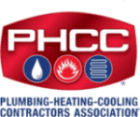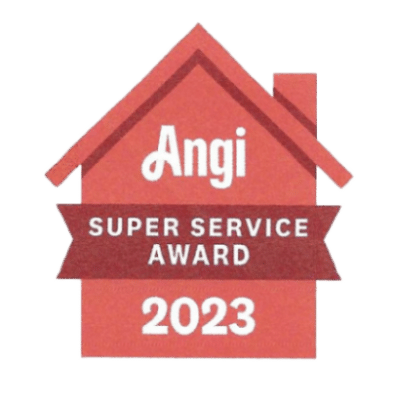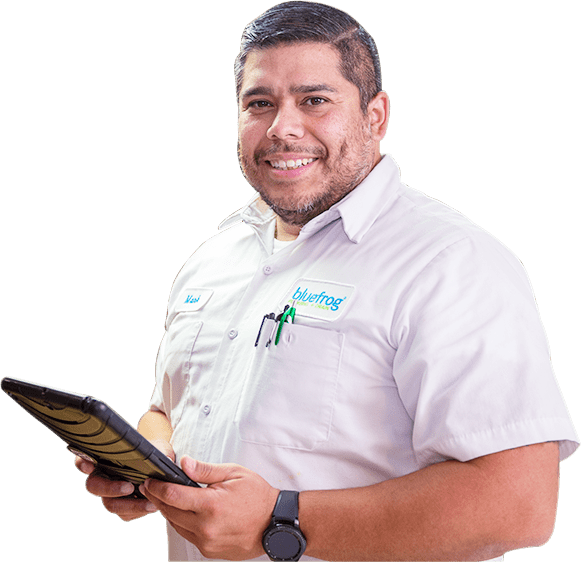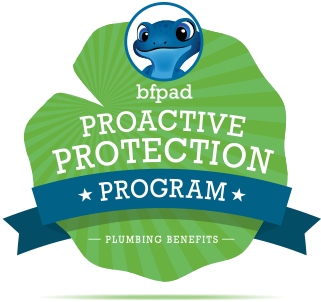
Emergency Plumbing Preparedness Tips
Emergency Plumbing – Have you ever faced a sudden burst pipe or a severe leak? Emergency plumbing involves urgent repair services required to address critical issues in your plumbing system. These problems often demand immediate attention to prevent extensive water damage, health hazards, and other serious complications.
An emergency plumber is adept at managing unexpected plumbing disasters, ensuring that your home returns to normal swiftly. Why is emergency plumbing so crucial? Consider waking up to a flooded bathroom or a clogged sewer line.
Timely intervention in such scenarios is vital for maintaining the safety and functionality of your home, preventing significant damage, and saving on potentially high repair costs. This introduction sets the stage for a deeper exploration into how to effectively handle and prepare for plumbing emergencies.
What is Emergency Plumbing?
Emergency plumbing refers to urgent repair services required to fix critical issues in your plumbing system. These problems often need immediate attention to prevent water damage, health hazards, and further complications. An emergency plumber is skilled in handling unexpected plumbing disasters, ensuring your home returns to normal swiftly.
Why is Emergency Plumbing Important?
Imagine waking up to a flooded bathroom or a clogged sewer line. Emergency plumbing is crucial for maintaining the safety and functionality of your home. Prompt action can:
- Prevent extensive water damage: Immediate repairs reduce the risk of water seeping into walls, floors, and electrical systems.
- Ensure health and safety: Addressing issues like sewage backups or gas leaks prevents exposure to harmful bacteria and gases.
- Save money: Quick fixes prevent minor issues from escalating into costly repairs.
Common Emergency Plumbing Scenarios
Plumbing emergencies can strike at times. Some of the most frequent scenarios include:
- Burst Pipes: Often caused by freezing temperatures or old pipes, burst pipes can cause significant water damage if not addressed promptly.
- Blocked Drains and Toilets: Severe blockages can lead to overflowing water, posing a hygiene risk and causing property damage.
- Leaking Faucets and Fixtures: Persistent leaks of waste water and can lead to higher utility bills and potential water damage.
- Water Heater Failures: A malfunctioning water heater can leave you without hot water, affecting daily activities like showering and cleaning.
- Sewer System Backups: This poses a major health hazard and requires immediate attention to prevent contamination and property damage.
Understanding the importance of emergency plumbing and recognizing common scenarios can help you respond effectively to unexpected issues. Being prepared ensures you can protect your home and family from potential harm.
Assessing Your Home’s Plumbing System
Identifying Potential Plumbing Issues
Do you know how to spot plumbing problems before they escalate? Regularly assessing your home’s plumbing system is crucial. Start by examining visible pipes for any signs of rust, corrosion, or leaks. Pay close attention to:
- Water stains on walls and ceilings: These often indicate hidden leaks.
- Low water pressure: This could signal blockages or pipe damage.
- Unusual noises: Sounds like banging or gurgling can hint at air in the pipes or blockages.
Regular Maintenance Checks
Maintaining your plumbing system helps prevent emergency plumbing situations. Schedule routine inspections to catch issues early. Key areas to check include:
- Water Heaters: Inspect for leaks, rust, and sediment buildup. Flushing the tank yearly can extend its lifespan.
- Toilets: Ensure they flush properly and check for leaks around the base.
- Faucets and Showerheads: Look for drips and ensure they function smoothly.
- Drains: Use strainers to prevent clogs and clear them regularly with safe cleaners.
Signs of Imminent Plumbing Problems
Recognizing early warning signs can save you from costly repairs. Be vigilant about:
- Sudden spikes in water bills: This could indicate hidden leaks.
- Discolored water: Brown or yellow water may mean rust in the pipes.
- Slow drainage: This is often a sign of blockages in your pipes.
- Sewage odors: Foul smells from drains suggest a serious issue with the sewer line.
Regular assessment and maintenance of your plumbing system are essential steps in preventing emergency plumbing situations. By identifying potential problems early, you can take action before they escalate into significant issues.
Creating an Emergency Plumbing Plan
Steps to Develop a Plan
Ever wondered how to stay prepared for plumbing emergencies? Creating a comprehensive emergency plumbing plan can save you time and stress. Here’s how to start:
- Identify Key Shut-off Valves: Locate and label the main water shut-off valve and individual fixture valves.
- List Emergency Contacts: Keep a list of professional plumbers who offer emergency services.
- Outline Quick Fixes: Document simple DIY solutions for common issues like leaks or clogs.
Communicating the Plan to Household Members
An emergency plan is only effective if everyone in the household knows it. Here’s how to ensure everyone is prepared:
- Conduct Training Sessions: Teach family members how to locate and use shut-off valves and basic tools.
- Create Easy-to-Find Instructions: Post the emergency plan and contacts in a visible place, like the kitchen or utility room.
- Regular Drills: Periodically practice the plan to ensure everyone knows what to do in an emergency.
Creating and communicating a detailed emergency plumbing plan can significantly reduce the impact of unexpected issues. By preparing ahead of time, you can ensure quick and effective responses to plumbing emergencies.
Essential Tools and Supplies for Plumbing Emergencies
Basic Plumbing Tools Every Home Should Have
Are you prepared for a plumbing emergency? Having the right tools on hand can make a huge difference. Here are essential tools every home should have:
- Adjustable Wrench: Ideal for loosening and tightening fittings.
- Plunger: A must-have for unclogging toilets and drains.
- Pipe Wrench: Useful for turning metal pipes and fittings.
- Plumber’s Tape: Seals pipe threads to prevent leaks.
- Pliers: Helps grip and turn nuts and bolts.
Emergency Plumbing Kit Essentials
In addition to basic tools, a well-stocked emergency plumbing kit is vital. Here’s what to include:
- Bucket: To catch water from leaks.
- Pipe Repair Kit: Contains pipe clamps and patches for quick fixes.
- Flashlight: For inspecting dark or hard-to-reach areas.
- Gloves: Protects your hands while working.
- Wet/Dry Vacuum: Essential for cleaning up water quickly.
Where to Store Emergency Supplies
Storing your plumbing tools and supplies in an easily accessible place is crucial. Consider these tips:
- Designate a Space: Choose a specific area, like a utility closet or garage shelf, for your emergency kit.
- Label Containers: Mark containers and drawers for quick identification.
- Keep Tools Together: Store all plumbing tools and supplies in one location to avoid scrambling during an emergency plumbing situation.
Having the right tools and supplies can significantly reduce stress and damage during a plumbing emergency. Ensure your emergency kit is complete and accessible to handle any unexpected plumbing issues efficiently.
DIY Solutions for Common Plumbing Emergencies
How to Stop a Pipe Leak
Ever encountered a sudden pipe leak? Quick action can prevent major water damage. Here’s a simple DIY solution:
- Turn Off the Water: Locate and shut off the main water supply.
- Drain the Pipe: Open the faucets to drain any remaining water.
- Apply a Pipe Clamp or Wrap: Use a pipe repair clamp or wrap to seal the leak temporarily. These can be found in most hardware stores.
- Call a Professional: While this is a temporary fix, contact a plumber for a permanent repair.
Clearing a Blocked Drain
Blocked drains are common and can often be fixed without a plumber. Try these steps:
- Use a Plunger: Place the plunger over the drain and pump vigorously to dislodge the blockage.
- Try a Drain Snake: Insert a drain snake into the drain and twist it to break up the clog.
- Use Baking Soda and Vinegar: Pour a mixture of baking soda and vinegar down the drain, wait 15 minutes, then flush with hot water.
Addressing Low Water Pressure
Low water pressure can be frustrating, but it’s often fixable. Follow these steps:
- Check the Aerators: Unscrew the aerators on faucets and clean out any debris.
- Inspect for Leaks: Look for leaks in your pipes, as they can reduce pressure.
- Clear the Main Valve: Ensure the main water valve is fully open. Sometimes, partially closed valves can cause low pressure.
- Flush the Water Heater: Sediment buildup in the water heater can affect pressure. Flush the tank to clear out debris.
Handling common plumbing emergencies with these DIY solutions can save you time and money. However, if the problem persists or seems too complex, don’t hesitate to contact a professional plumber.
When to Call a Professional Plumber
Recognizing When DIY Isn’t Enough
Wondering when to throw in the towel and call a professional plumber? While DIY fixes can solve minor issues, some situations require expert intervention. Consider calling a plumber when:
- Repeated Issues: If the same problem keeps occurring despite your efforts.
- Major Leaks: Large leaks can cause significant damage and need professional repair.
- Sewage Problems: Issues with sewage lines are hazardous and require specialized equipment and expertise.
- Water Heater Troubles: Complex water heater issues are best handled by professionals.
- Low Water Pressure: Persistent low water pressure can indicate serious underlying problems.
Criteria for Choosing a Reliable Plumber
Selecting a trustworthy plumber is crucial. Here’s how to choose the right one:
- Check Credentials: Ensure the plumber is licensed and insured.
- Read Reviews: Look for reviews and ratings on trusted sites.
- Ask for References: Reliable plumbers will provide references from past clients.
- Get Multiple Quotes: Compare quotes from several plumbers to ensure fair pricing.
- Look for Experience: Choose a plumber with experience in handling similar issues.
Preventive Measures to Avoid Plumbing Emergencies
Regular Inspection and Maintenance Tips
Did you know that regular inspections can prevent most plumbing emergencies? Here’s how to keep your plumbing system in top shape:
- Inspect Pipes Regularly: Look for signs of corrosion, leaks, and wear.
- Check Water Pressure: Ensure your water pressure is within a safe range to avoid stress on your pipes.
- Examine Appliances: Regularly inspect appliances like dishwashers and washing machines for leaks or wear.
- Clean Drains: Use a safe drain cleaner monthly to prevent clogs.
- Flush Water Heaters: Annually flush your water heater to remove sediment buildup.
Upgrading Old Plumbing Fixtures
Upgrading outdated fixtures can significantly reduce the risk of plumbing emergencies. Consider the following upgrades:
- Replace Old Pipes: If your home has old galvanized or polybutylene pipes, consider replacing them with modern materials like PEX or copper.
- Install Low-Flow Fixtures: Low-flow faucets, showerheads, and toilets reduce water pressure and prevent strain on your plumbing.
- Upgrade Water Heaters: Modern water heaters are more efficient and less prone to leaks and failures.
- Smart Leak Detectors: Install leak detectors that alert you to leaks before they cause significant damage.
Insulating Pipes to Prevent Freezing
Frozen pipes are a common cause of plumbing emergencies, especially in colder climates. Here’s how to prevent them:
- Insulate Exposed Pipes: Use foam pipe insulation on pipes in unheated areas like basements, attics, and garages.
- Seal Gaps: Seal any gaps or cracks in your home’s exterior to prevent cold air from reaching your pipes.
- Let Faucets Drip: During extremely cold weather, let faucets drip slightly to keep water moving and prevent freezing.
- Heat Tape: Consider applying heat tape to pipes that are particularly prone to freezing.
Dealing with Specific Plumbing Emergencies
Burst Pipes: Immediate Actions
Encountering a burst pipe can be stressful, but quick actions can minimize damage. Here’s what to do immediately:
- Turn Off the Main Water Supply: Locate and shut off the main water valve to stop the water flow.
- Drain the System: Open all faucets to drain the remaining water from the pipes.
- Mop Up Excess Water: Use towels, mops, and a wet/dry vacuum to clean up standing water.
- Call a Professional: Contact a plumber to repair the burst pipe and assess the damage.
Sewer Backups: What to Do First
Sewer backups are hazardous and require urgent attention. Follow these steps:
- Avoid Using Water: Stop using water in your home to prevent further backups.
- Wear Protective Gear: Use gloves and masks to avoid contact with sewage.
- Ventilate the Area: Open windows to reduce foul odors and improve ventilation.
- Call a Professional: Sewer backups need immediate professional intervention. Contact an emergency plumber.
Water Heater Failures: Quick Fixes
A failed water heater can disrupt daily routines. Here’s how to address it:
- Check the Pilot Light: If you have a gas water heater, check if the pilot light is out and relight it if necessary.
- Reset the System: For electric heaters, try resetting the breaker or pressing the reset button on the unit.
- Inspect the Thermostat: Ensure the thermostat is set correctly and functioning.
- Drain the Tank: Sediment buildup can cause issues. Drain the tank to remove sediment and improve efficiency.
- Call a Professional: If these steps don’t resolve the issue, contact a plumber for a thorough inspection and repair.
Knowing how to respond to specific plumbing emergencies can mitigate damage and restore functionality quickly. Immediate action and professional help are key to handling these situations effectively.
Emergency Plumbing Services in Flower Mound (75022, 75027, 75028)
Top Rated Services
Living in Flower Mound and need a reliable plumber? Emergency plumbing services in this area are top-notch. Companies here are known for their prompt response and high-quality work. Whether it’s a burst pipe, blocked drain, or malfunctioning water heater, you can count on these services to address your needs swiftly.
What to Expect
When you call an emergency plumber in Flower Mound, you can expect:
- Fast Response Times: Most services guarantee arrival within an hour of your call.
- Expert Technicians: Licensed and experienced plumbers who can handle any emergency.
- Transparent Pricing: Clear and upfront pricing with no hidden fees.
- Comprehensive Solutions: From quick fixes to major repairs, they offer a wide range of services.
- 24/7 Availability: Plumbing emergencies don’t wait for business hours, and neither do these professionals.
Emergency Plumbing Services in Lake Dallas (75065)
Available Services
Need emergency plumbing help in Lake Dallas? This area boasts a range of services to tackle any plumbing crisis. From leaky pipes to sewage backups, local plumbers are equipped to handle it all. Services typically include:
- 24/7 Emergency Response: Plumbers are available around the clock for urgent issues.
- Leak Detection and Repair: Advanced techniques to locate and fix leaks quickly.
- Drain Cleaning: Efficient solutions for clogged drains and pipes.
- Water Heater Repair and Installation: Fast fixes and replacements to restore hot water.
- Sewer Line Services: Expert handling of sewer backups and related problems.
Quality and Reliability
Emergency plumbing services in Lake Dallas are known for their reliability and high standards. Here’s what sets them apart:
- Licensed and Insured: All technicians are fully licensed and insured, ensuring professional service.
- Experienced Plumbers: Years of experience in handling a variety of plumbing emergencies.
- Modern Equipment: Use of the latest tools and technology for accurate and efficient repairs.
- Customer Satisfaction: A strong focus on delivering quality service and ensuring customer satisfaction.
Insurance and Emergency Plumbing
Does Home Insurance Cover Plumbing Emergencies?
Wondering if your home insurance covers plumbing emergencies? Generally, home insurance policies cover sudden and accidental water damage but not issues resulting from poor maintenance. Here’s what you need to know:
- Covered Situations: Burst pipes, sudden leaks, and water heater explosions are typically covered.
- Excluded Situations: Slow leaks, wear and tear, and issues caused by lack of maintenance are usually not covered.
- Policy Limits: Check your policy for specific coverage limits and exclusions related to water damage.
How to File a Claim for Plumbing Damage
Filing an insurance claim for plumbing damage can seem daunting, but it doesn’t have to be. Follow these steps:
- Document the Damage: Take photos and videos of the affected areas. Document the date and extent of the damage.
- Contact Your Insurance Company: Notify your insurer as soon as possible. Provide detailed information about the incident.
- Prevent Further Damage: Take steps to mitigate further damage, such as turning off the water supply and arranging for temporary repairs.
- Keep Receipts: Save receipts for any emergency repairs or services. These expenses may be reimbursed.
- Work with the Adjuster: Cooperate with the insurance adjuster assigned to your case. Provide any additional information they request.
Frequently Asked Questions (FAQ)
- What Constitutes a Plumbing Emergency?
A plumbing emergency is any situation that requires immediate attention to prevent significant water damage, health hazards, or further complications. Common examples include burst pipes, severe leaks, sewage backups, and malfunctioning water heaters.
- How Can I Prevent Plumbing Emergencies?
Regular maintenance and inspections are key to preventing plumbing emergencies. This includes checking for leaks, maintaining your water heater, insulating pipes, and replacing old fixtures. Implementing a preventive maintenance schedule can catch issues before they become emergencies.
- What Should I Do If I Smell Gas or Suspect a Leak?
If you smell gas or suspect a leak, immediately turn off the gas supply, avoid using electrical appliances, open windows for ventilation, and evacuate the area. Contact your gas company and a professional plumber right away to handle the situation safely.
- How Quickly Should I Call a Plumber During an Emergency?
You should call a plumber immediately during an emergency. Quick action can minimize damage and prevent the situation from worsening. Having an emergency plumber contact list ready can save valuable time in critical situations.
- Does Home Insurance Cover Plumbing Emergencies?
Home insurance typically covers sudden and accidental water damage from plumbing emergencies, such as burst pipes or water heater failures. However, damage resulting from neglect or lack of maintenance is usually not covered. Check your policy details for specific coverage information.



















